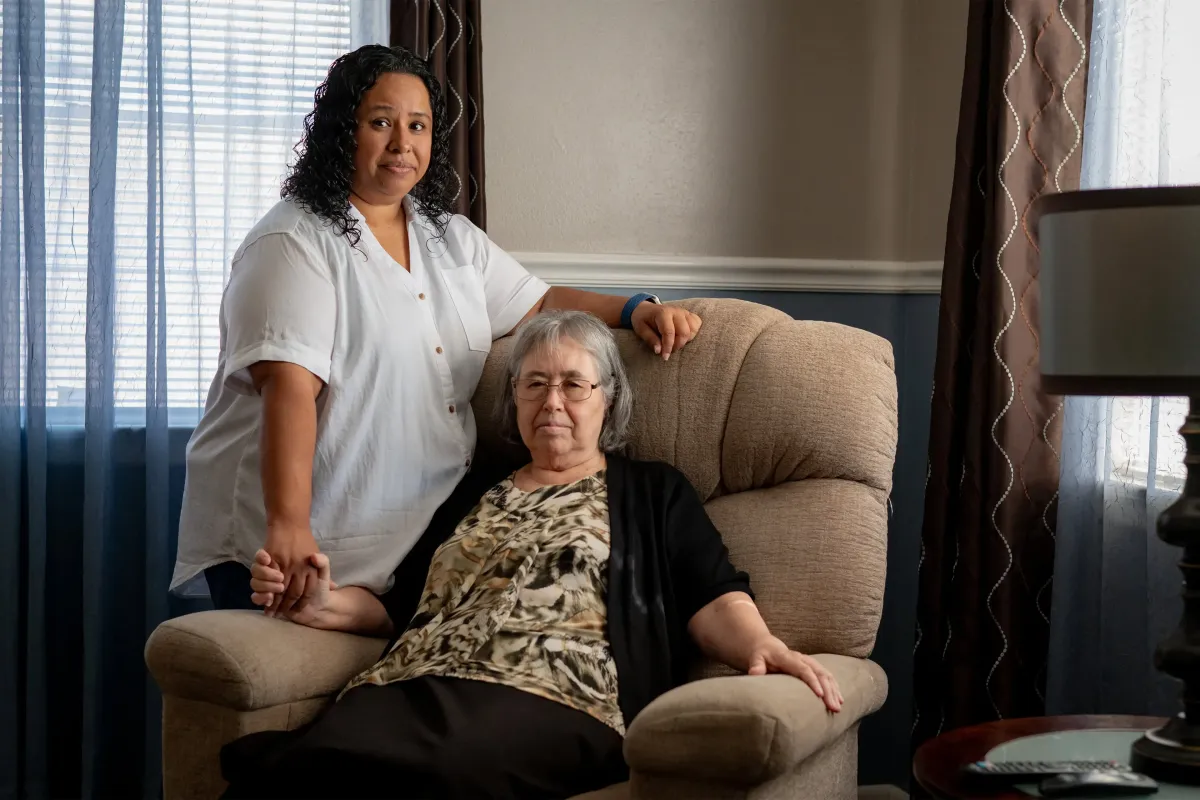
When Your Parent Refuses Help: Gentle Ways to Build Trust and Connection
💡 Caregiver Aha! Moment:
You may feel invisible, but you’re not. Not here.
When your parent refuses help, it’s not just about the task; it’s about what they’re afraid of losing.
The Moment You’ve Lived Through
You offer to help. Maybe it’s with bathing, getting to an appointment, or managing medication.
Your mom snaps back:
“I don’t need help. Stop treating me like I’m helpless.”
Your heart sinks. You were trying to care for her, and somehow it turned into conflict.
You back off, frustrated and confused. Later, guilt creeps in. You wonder if you pushed too hard or gave up too soon.
What’s Really Going On Underneath
When aging parents resist help, it’s rarely about the help itself. It’s about:
Fear of losing independence
Pride in what they can still do
Shame around needing care
Anxiety about becoming a burden
For them, accepting help can feel like admitting defeat. For you, it can feel like a door slammed shut.
Recognizing these emotions is the first step to changing the dynamic.
Why Most Conversations Go Wrong
When emotions run high, we often default to reactions that escalate tension:
Arguing with logic:
“But you need help, look what happened last time.”Taking over:
“Fine, I’ll just do it myself.”Avoiding the topic:
Waiting until a crisis forces the issue.
These responses are natural, but they unintentionally reinforce resistance.
How to Respond with Love (and Still Make Progress)
The goal isn’t to win an argument, it’s to create safety in the conversation.
Here are gentle scripts you can try the next time you hear, “I don’t need help.”
Validate First
“Mom, I know you’re capable. I’m not trying to take over, I just want to make things easier for you.”Ask Instead of Tell
“What part feels hardest about letting me help?”
(Then listen. Truly listen.)Offer Choices, Not Ultimatums
“You don’t have to let me do everything. What’s one thing you’d be okay with me helping on?”
Steps Forward
Pause before reacting. Let the tension breathe.
Validate their autonomy. Use words that honor their independence.
Start small. Agree on one area of support before pushing for more.
These small shifts build trust, and trust opens the door for bigger help later.
💬 Caregiver Quote to Remember:
“The strongest relationships aren’t built on doing everything, they’re built on doing the right things together.”
When the Conversation Still Feels Hard
If these talks leave you walking on eggshells, you’re not alone. You don’t have to figure out what to say by trial and error.
The Conversation Clarity Report gives you:
Scripts tailored to your exact situation
A guided plan to lower tension
Confidence that you’re saying the right thing at the right time
FAQs About When a Parent Refuses Help
Why does my parent get angry when I offer help?
Anger is often a mask for fear or frustration. Your parent may feel their independence is slipping away, and anger becomes a way to protect their sense of control.
How can I encourage help without pushing too hard?
Start small. Offer assistance in one area they feel comfortable with and build from there. Use language that respects their autonomy.
What if my parent’s refusal puts them at risk?
Safety comes first. If they are in immediate danger, step in as needed. For ongoing concerns, involve their doctor or a neutral third party to help guide decisions.
Should I get professional support for these conversations?
Yes, sometimes an outside perspective helps. Consider consulting a senior care planner or a family therapist who specializes in aging dynamics.
Where to Find More Support
While you’re learning to navigate this season, here are a few resources to keep in your pocket:
The Aging Society Resource Center – Free and low-cost tools for every stage of senior care.
Follow on Pinterest – Daily tips to approach senior care with clarity and calm.
💌 Want more bite-sized tips?
Sign up for Family Matters, my weekly newsletter packed with quick, practical guidance to help you feel more supported in this journey.
Recommended Product:
🎯 Amazon Pick: Weekly Pill Organizer – A simple yet empowering way for your parent to manage their medications while maintaining independence.
💡 You may feel invisible, but you’re not. Not here. Not now. Not ever.
